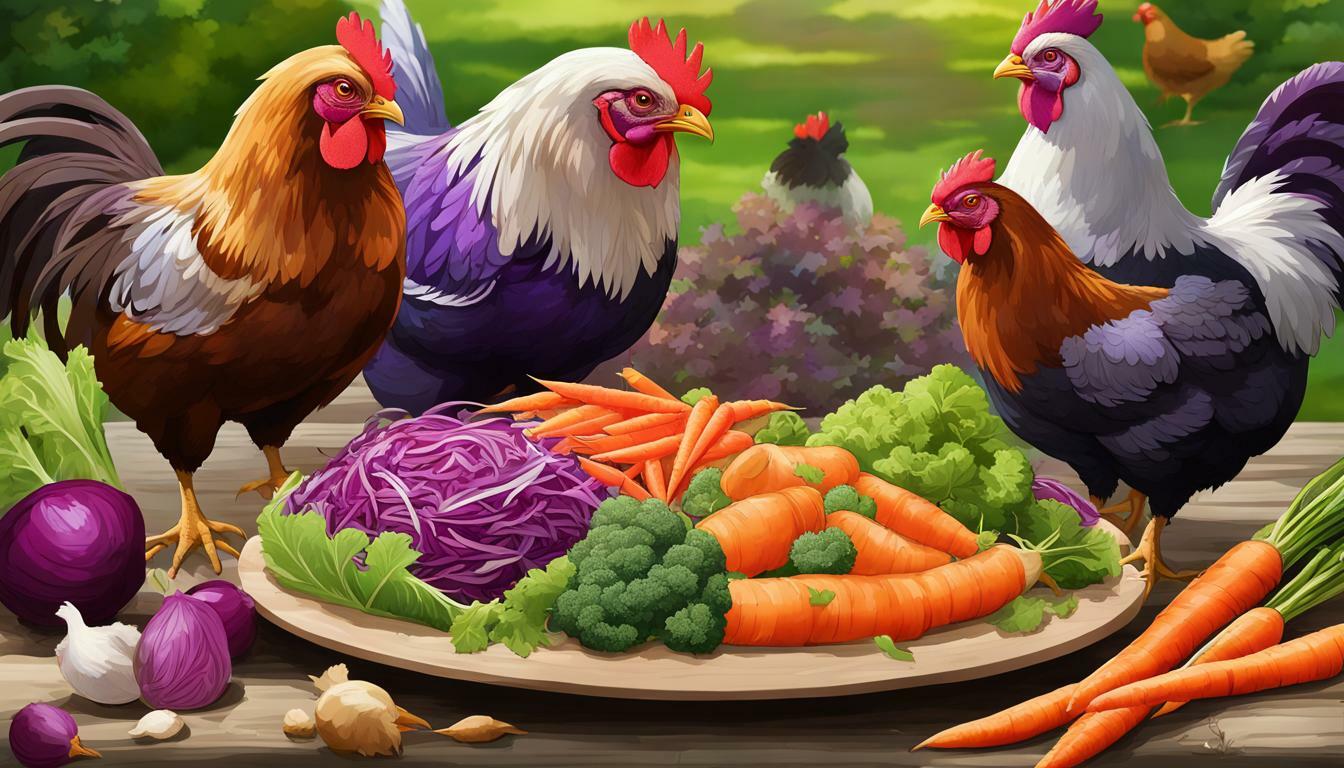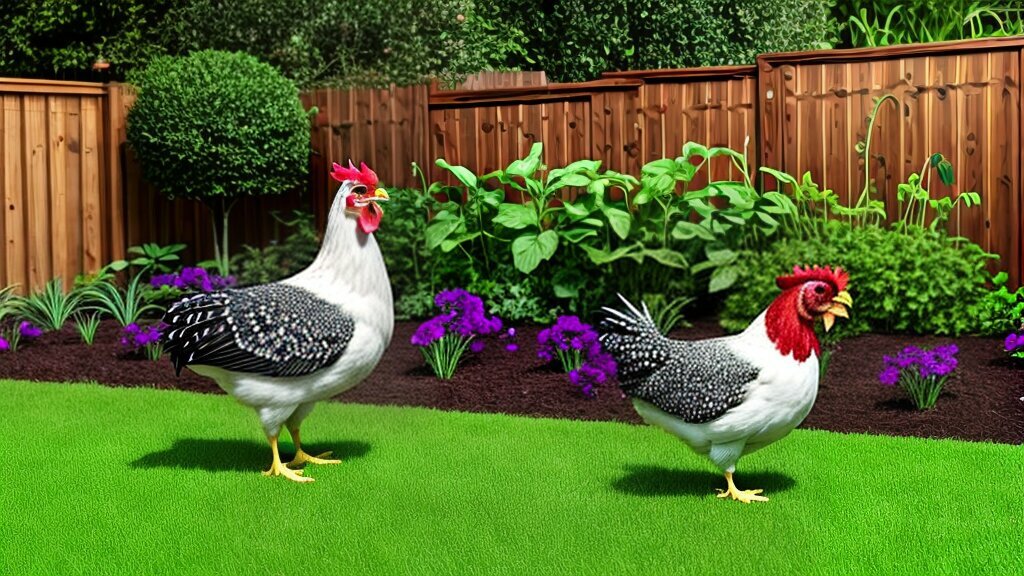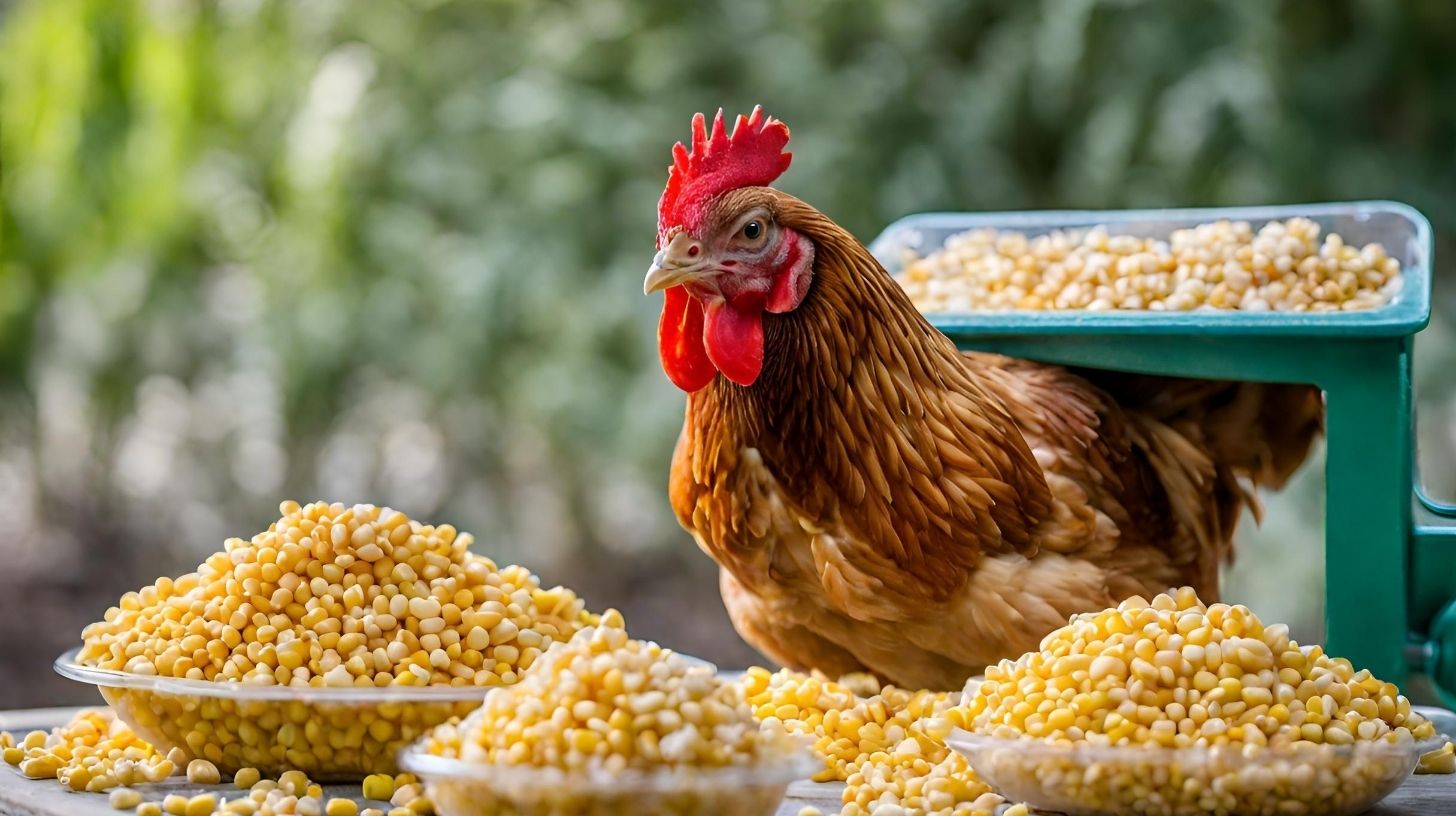Can Chickens Eat Parakeet Food? Find Out the Answer Today!

Table of content:
As a backyard chicken owner, you might be tempted to give your feathered friends a taste of different bird foods, such as parakeet food. While parakeet food might seem like a healthy and nutritious treat for your chickens, it’s essential to understand the dietary requirements of your flock before offering them any new foods. In this section, we will explore whether it is safe for chickens to consume parakeet food and address any safety concerns that may arise.
Chickens have specific dietary needs that must be met for their optimal health and egg production. Their diet should consist of a balanced combination of protein, carbohydrates, fats, vitamins, and minerals. While parakeet food might contain some of these nutrients, the nutritional needs of parakeets and chickens are vastly different.
Key Takeaways:
- Feeding chickens a balanced diet is crucial for their health and egg production.
- Parakeet food and chicken feed have different nutritional compositions.
- It’s important to understand the dietary requirements of your flock before offering them new foods.
Understanding the Chicken Diet
If you are a backyard chicken owner, it’s vital to understand the nutritional requirements of your feathered friends. Providing a balanced diet is key to their overall health and wellbeing, as well as for optimal egg production.
The Importance of Poultry Nutrition
Similar to humans, chickens require a variety of essential nutrients to thrive. These include protein, carbohydrates, fats, vitamins, and minerals. A lack of any of these nutrients can lead to health problems and a decrease in egg production.
It’s important to note that different chicken breeds and stages of life have varying nutritional needs. For example, hens that are actively laying eggs require a higher protein and calcium intake than those that are not. Additionally, young chicks need a specific diet to promote healthy growth and development.
The Role of Balanced Chicken Feed
A balanced chicken feed is designed to meet the specific nutritional needs of chickens. It typically includes a blend of grains, proteins, vitamins, and minerals in appropriate proportions. Feeding your chickens a balanced chicken feed as their main source of nutrition ensures they receive the necessary nutrients to maintain good health.
There are many types of chicken feed available on the market, including organic and non-GMO options. It’s essential to choose a feed that’s appropriate for your chicken’s breed, age, and production stage.
Supplementing the Diet
While a balanced chicken feed is the foundation of a chicken’s diet, it’s essential to supplement it with additional nutrients and treats. Fresh fruits and vegetables, such as leafy greens, carrots, and berries, are a great way to add variety to their diet and provide additional vitamins and minerals.
Commercial treats, such as mealworms and seed mixes, can also be offered in moderation. However, it’s crucial to avoid overfeeding treats, as they are often high in fat and can lead to obesity and other health problems.
By understanding the nutritional needs of your chickens and providing a balanced diet, you can ensure their health and productivity.
Nutritional Differences Between Parakeets and Chickens
Parakeets and chickens have distinct dietary requirements due to their species-specific needs. While both birds require a balanced diet, the composition and proportion of nutrients vary based on their anatomy, lifestyle, and stage of life.
For instance, parakeets are smaller than chickens and have a higher metabolic rate. As a result, they need fewer calories but more protein, fat, and certain vitamins and minerals to maintain their feathers, beaks, and bones, as well as produce eggs. Parakeet food typically consists of seeds, fruits, vegetables, and fortified pellets, which provide a range of essential nutrients in varying amounts.
Chickens, on the other hand, are omnivores and need more complex carbohydrates, fiber, and calcium than parakeets. They also require a higher quantity of some vitamins and minerals, such as vitamin D, vitamin E, and phosphorus, to support the growth and maintenance of their muscles, bones, and eggshells. Commercial chicken feed usually contains grains, soybean meal, fishmeal, and other ingredients that provide a balanced mix of nutrients for different types of chickens.
Some of the key nutritional differences between parakeet food and chicken feed include:
- Protein content: Parakeet food contains a higher percentage of protein than chicken feed (around 12-18% vs. 16-20%), but the sources and quality of protein may vary. Chicken feed often includes animal protein from meat or bone meal, while parakeet food may rely on plant-based protein from seeds or legumes.
- Fat content: Parakeet food has a higher fat content than chicken feed (around 5-10% vs. 3-5%), which can provide energy and aid in the absorption of certain vitamins. However, too much fat can lead to obesity and other health issues in chickens.
- Fiber content: Chicken feed typically contains more fiber than parakeet food (around 3-8% vs. 2-4%) to support digestion and prevent crop impaction. Parakeets have a shorter digestive tract and do not require as much fiber.
- Calcium content: Chicken feed contains a much higher level of calcium than parakeet food (around 2-4% vs. 0.5-1%), which is critical for eggshell formation and bone health. Parakeets do not need as much calcium and may develop kidney or liver problems if they consume too much.
Overall, while parakeet food may contain some nutrients that are beneficial for chickens, it does not provide a complete and balanced diet for them. Feeding chickens parakeet food as a primary source of nutrition can lead to deficiencies, imbalances, or even toxicity. Therefore, it is advisable to stick to commercial chicken feed or consult with a poultry nutrition expert to ensure that your chickens receive the nutrients they need and thrive.
Potential Safety Concerns
Before feeding your chickens parakeet food, it’s essential to understand the potential safety concerns. As parakeets and chickens have different dietary needs, there are several risks associated with offering parakeet food to chickens.
- Ingredient incompatibility: Chicken feed is formulated to meet the nutritional needs of chickens, including adequate amounts of protein, vitamins, and minerals. Parakeet food may not provide the specific balance of nutrients that chickens require for their overall health and productivity. Moreover, the high fiber content in parakeet food may cause digestive issues and reduce nutrient absorption in chickens.
- Additives and contaminants: Parakeet food may contain additives such as preservatives and artificial flavors, which can pose potential health risks to chickens. Additionally, parakeet food may be contaminated with bacteria, mold, or other harmful substances that can cause illness in chickens.
Therefore, it is vital to ensure that any food offered to your chickens is safe, nutritionally balanced, and appropriate for their species.
The Importance of Balanced Nutrition for Chickens
Your chickens rely on you to provide them with a balanced and nutritious diet to support their growth, health, and egg production. A balanced diet ensures that they receive the essential nutrients they need, such as protein, carbohydrates, fats, vitamins, and minerals.
Protein
Protein is particularly important for chickens because it is necessary for egg production and the growth and repair of their bodies. You can provide your chickens with protein through chicken feed and other sources, such as soybeans, mealworms, and cooked eggs.
Vitamins and Minerals
Vitamins and minerals are essential for maintaining your chickens’ health, bone structure, and immune system. Your chickens need vitamins like A, D, and E, as well as minerals like calcium and phosphorus. Chicken feed typically includes these nutrients, but you can also offer your chickens leafy greens, carrots, and other vegetables.
Carbohydrates and Fats
Carbohydrates and fats provide your chickens with energy. These nutrients can be obtained from sources like grains, seeds, and kitchen scraps. However, it’s important to limit the amount of high-fat or high-carbohydrate treats to prevent obesity and health issues.
By ensuring that your chickens have a balanced diet, you can help them live healthy and productive lives. Remember that their nutritional needs may vary depending on their age, breed, and other factors, so consult a poultry nutrition expert if you have any concerns.
Alternative Treats for Chickens
If you’re looking to give your chickens a special treat, but parakeet food isn’t a good option, there are plenty of other treats that they’ll love. These treats can be used to supplement their regular diet, but should not become a staple in their feeding routine.
1. Fruits and Vegetables
Chickens love fresh fruits and vegetables. Some good options include apples, bananas, grapes, watermelon, and leafy greens. You can chop the fruits and vegetables into bite-sized pieces and offer them as a snack.
2. Mealworms or Crickets
If you’re looking for a protein-rich treat, try offering mealworms or crickets to your chickens. These can be found at most pet stores and are a great source of protein for your feathered flock.
3. Cooked Rice or Pasta
If you have leftover rice or pasta, your chickens will love it. Cooked rice and pasta are a great source of carbohydrates for your birds.
4. Yogurt
Plain, unsweetened yogurt is a good source of probiotics for your chickens. You can offer it as a treat or mix it with their regular feed to provide a boost of healthy bacteria.
Remember that treats should be given in moderation, as too many can upset your chickens’ digestive system and lead to health problems. Always provide fresh, clean water and a balanced chicken feed as the main source of nutrition for your flock.
Consulting a Poultry Nutrition Expert
If you are still unsure about whether it is safe to feed your chickens parakeet food, it is always best to seek guidance from a poultry nutrition expert. These professionals have the knowledge and experience to provide you with tailored advice on the best diet for your backyard flock.
Consulting an expert will help you determine if your chickens are receiving adequate nutrition and if any adjustments need to be made to their feeding routine. They can also help you identify any potential health issues that may arise from feeding your chickens parakeet food, as well as provide you with alternative treats that are safe and nutritious.
By working with a poultry nutrition expert, you can ensure that your chickens are healthy, happy, and productive members of your backyard flock.
Conclusion
After considering the nutritional needs of chickens and parakeets, as well as the potential safety concerns associated with feeding parakeet food to chickens, it is advisable to avoid offering parakeet food to your backyard flock.
Feeding your chickens a well-balanced and nutritious diet is crucial for their overall health, productivity, and egg-laying ability. Therefore, it is recommended to stick with a chicken feed that is specifically formulated for their dietary needs and to supplement their diet with safe and nutritious treats.
Consulting with a Poultry Nutrition Expert
If you’re still unsure about the nutritional requirements of your chickens or have concerns about their diet, it may be beneficial to consult with a poultry nutrition expert. They can provide tailored advice tailored to the specific needs of your flock and help ensure their nutritional needs are met.
By prioritizing your chickens’ dietary requirements and providing them with a balanced and nutritious diet, you can help maintain the health and productivity of your backyard flock.
Welcome. I’m Adreena Shanum, the proud owner of this website, and I am incredibly passionate about animals, especially poultry. I founded adreenapets.com as a labor of love, stemming from my desire to share my knowledge and experiences with poultry enthusiasts worldwide.




